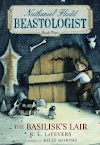So I’m going to talk about that. Plus, since I’m gearing up for my teaching stint at the Santa Barbara Writer’s Conference, I can use it there, too. Two birds, one stone, etc.
The short answer to Agent E’s question: In the very first scene, you show a glimpse (and just a glimpse, mind you) of the emotional hole the main character is trying to fill.
But you show it in such an off-hand way that it’s clear the character themselves are unaware of that emotional lack and how it affects them or drives their behavior. (And really, aren’t most of us unaware of the scars that drive us? That burgeoning awareness of our own behavior is part of the journey.)
Basically, you show the emotional scar tissue without explaining the wound.
What this does is three things:
- It creates empathy with the protagonist. Even an unsavory protagonist can be compelling if we get a hint of what emotional wounds are driving him.
- It raises our curiosity as to how those scars got there.
- It assures us that we are about to embark on an internal journey as well as an external journey; that this journey will have some emotional depth to it.
For example, think of the first Harry potter book. Would we care as much about Harry if we met him for the first time at Hogwarts? Probably not. It was his unrelentingly grim home life that first bonded us to Harry, not his magical skills. We felt emotionally for that kid who was stuck living under the stairs and made to be a slave to the highly distasteful Dursleys. And yet the plot of that book, the philospher’s stone, isn’t really introduced until Hagrid takes the mysterious packet out of the vault at Gringotts. But our emotional connection to Harry and compelling dramatic questions occur much earlier than that and capture our interest.
In the Black Book of Secrets, E. F. Higgens creates enormous empathy for a rather unsympathetic character—a pickpocket. Yet when we see his own parents trying to capture him so they can have his teeth pulled to pay for their gin, we suddenly understand him a little better, and have immediate empathy. Again, his subsequent journey wouldn’t be as meaningful if we didn’t see what sort of wretched beginnings he’d come from.
My Big Sister is So Bossy She Says You Can’t Read This Book by Mary Hershey uses humor and a grossly unfair power balance between Effie and her big sister to bond us immediately to Effie. She also shows us a dash of Effie's deeply buried yet still alive rebellious nature, so we don't have to worry that she's a total wet noodle. There's still some fight left in her.
Winn Dixie has heroine doing something nice—bringing home the dog. But it is also emotionally risky—her dad’s not much of one for reaching out or connecting emotionally, so we also see the big hole in her life left by both her father’s distance and her mother’s absence. It is instantly far more than just a stray dog that is at stake here.
Then the second thing you need to do is use the situation in which you introduce the character to raise dramatic questions about the plot or the world the character inhabits. The above openings do double duty and also raise dramatic questions.
Winn Dixie does it through dropping hints about the backstory; What did happen to India’s mother? Why is her dad like a turtle?
My Big Sister does this by making us wonder what lies were told and also by putting Effie in a hugely unfair situation with her big sister. Hershey also does a fabulous job of hinting at Effie’s true nature by showing she’s got ways of her own of fighting back.
Rowling, of course, does this with the world she creates. There are so many amazing things going on, letters insisting on being delivered, huge giants showing up on deserted islands, Diagon alley, all those tells us we have just entered a world of untold surprises and delights. That combined with our emotional connection with Harry fully suck us into the story.
Sounds easy, doesn’t it? But how do we do all that? In the first few pages, no less?
Tomorrow (hopefuly) I’ll talk more about the actual tools and techniques we can use for doing just that.

















5 comments:
Robin, you rock! (Of course!)
--Agent E.
Agent E directed me here, as I am asking the same questions with my MS - this was a great post! Thanks!
I recently referred back to my notes from your plotting workshop in Santa Barbara. Internal and external conflict was new to me at the time, but you are so right. The reader has to feel that emotional connection straight away.
Thanks for reminding me of this. Not only are you a great writer but a fantastic teacher!
cynjay and Patty, I'm so glad you both found this helpful! I will be posting more on the subject later today...
Who knows where to download XRumer 5.0 Palladium?
Help, please. All recommend this program to effectively advertise on the Internet, this is the best program!
Post a Comment